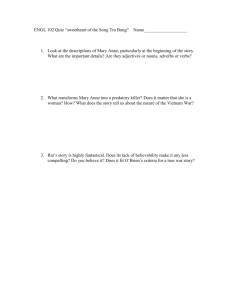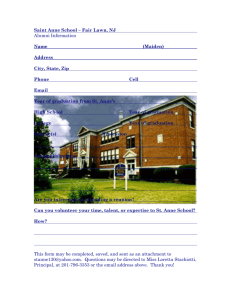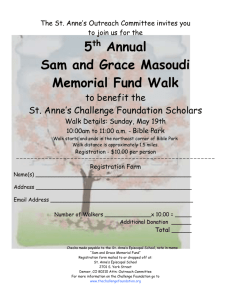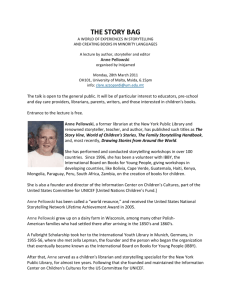Document 10679647
advertisement
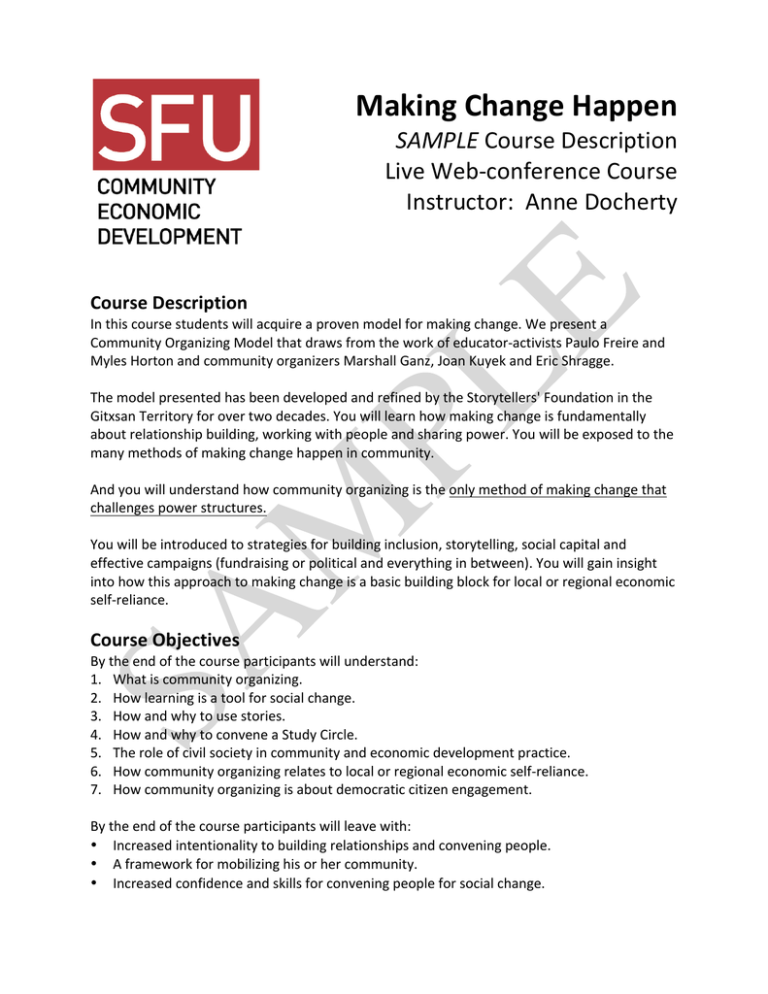
Making Change Happen SAMPLE Course Description Live Web-­‐conference Course Instructor: Anne Docherty Course Description In this course students will acquire a proven model for making change. We present a Community Organizing Model that draws from the work of educator-­‐activists Paulo Freire and Myles Horton and community organizers Marshall Ganz, Joan Kuyek and Eric Shragge. The model presented has been developed and refined by the Storytellers' Foundation in the Gitxsan Territory for over two decades. You will learn how making change is fundamentally about relationship building, working with people and sharing power. You will be exposed to the many methods of making change happen in community. And you will understand how community organizing is the only method of making change that challenges power structures. You will be introduced to strategies for building inclusion, storytelling, social capital and effective campaigns (fundraising or political and everything in between). You will gain insight into how this approach to making change is a basic building block for local or regional economic self-­‐reliance. Course Objectives By the end of the course participants will understand: 1. What is community organizing. 2. How learning is a tool for social change. 3. How and why to use stories. 4. How and why to convene a Study Circle. 5. The role of civil society in community and economic development practice. 6. How community organizing relates to local or regional economic self-­‐reliance. 7. How community organizing is about democratic citizen engagement. By the end of the course participants will leave with: • Increased intentionality to building relationships and convening people. • A framework for mobilizing his or her community. • Increased confidence and skills for convening people for social change. • • • • Increased social capital within his or her community. Increased skills for and having practiced storytelling. The experience of convening a Study Circle from start to finish. A report to researcher that includes a Story of Hope. About the Instructor In this Q and A with Briarpatch magazine, Anne traces her path as a popular educator. “Popular education begins with recognition that the people most affected by issues should be the ones designing the solutions.” Anne grew up in working-­‐class Scotland, where she was exposed early to the principles of popular education. “In my family, we had a strong sense of cultural identity and resistance to British domination. Liberation theology was a major influence in the church I grew up in, and the oppression of poor Catholics by British elites was a central concern.” Anne went on to study with Augusto Boal at the Sorbonne before moving to Hazelton, British Columbia in the Gitxsan territories where she has been using popular education to support cultural survival and decolonization for over 30 years. Anne describes how the work of cultural survival is linked to regional self-­‐determination and economic development: “One of the major barriers facing the Gitxsan was government’s lack of willingness to consider alternative possibilities to the prevailing model of development and governance. Government policy privileged large-­‐scale resource development led by multinational corporations. The institutional structure did not have the necessary adaptability or flexibility to incorporate recognition of Gitxsan governance and the territorial rights and responsibilities that Gitxsan people hold.” In the 1990’s the Gitxsan chiefs encouraged Anne to start using popular education to engage with non-­‐Gitxsan people. Anne formed the Storytellers' Foundation to support local people to realize their full potential and power in culturally diverse ways. Storytellers’ achieves this through a wide variety of programming that is responsive to the dynamics and changes in the community. Programs include training enterprises, community gardens, community farms, local hub, neighbourhood compost, civic engagement, a good food box and more. Visit the website to access guidebooks that support the learning and action that are the foundation for each of these programs. www.upperskeena.ca WWW.SFU.CA/CSCD/CED 2

